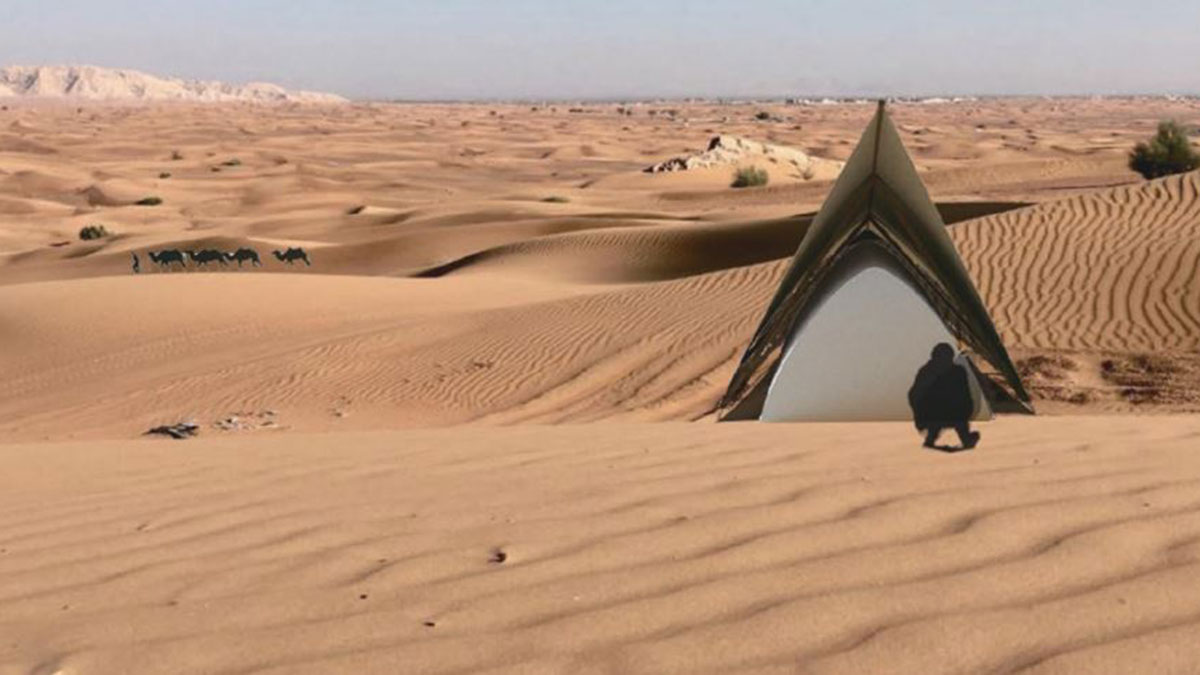Published:

An international competition aimed at pushing architectural boundaries in extreme climates has been launched after being inspired by an Antarctic research project involving Heriot-Watt University.
The Extreme Lodge Desert Lodge competition invites students to design a temporary shelter capable of withstanding the punishing weather conditions found in desert climates.
A total of 161 students in 63 teams from 27 countries registered for the competition, which was organised by Sue Roaf, an Emeritus Professor of Architectural Engineering from Heriot-Watt University, alongside Dr Joao Pinelo from the University of Bahrain.
In 2019, both Professor Roaf and Dr Pinelo joined Dr Manuel Guedes of the Technical Institute in Lisbon on a memorable trip to the Antarctic where they tested a temporary structure, carefully designed to withstand some of the harshest weather conditions on the planet.
Their eye-catching creation was an optimised yurt style tent lined with two skins of an innovative multi-layered material, topped with a weather-resistant outer skin of Dyneema, sewn from a re-cycled racing yacht sail. The tent has now survived two winters in winds of up to 100mph and temperatures as low as -30C.
It was the many lessons learnt in Antarctica that inspired the Desert Lodge project, designed to open students minds to new ways of thinking about building resilience during the types of extreme weather conditions.
Emeritus Professor Roaf, said: “We are very excited about some of the outstanding ideas that have been proposed by students from around the world. As we go into 2021, we are really proud that 200 years after the first Mechanics Institute began its work to educate the engineers for the industrial revolutions of the 19th and 20th centuries, we at Heriot-Watt, which grew from that pioneering educational experiment, are still leading the way for new thinking about technologies and buildings that are fit for purpose in the 21st Century.”
Full details of the competition brief and the short biogs of the fifteen judges can be found on the competition website. The winners will be announced on the 2nd of October with prizes awarded by the competition sponsor OPUS Energy, who is the largest supplier of renewable energy to businesses in Britain.